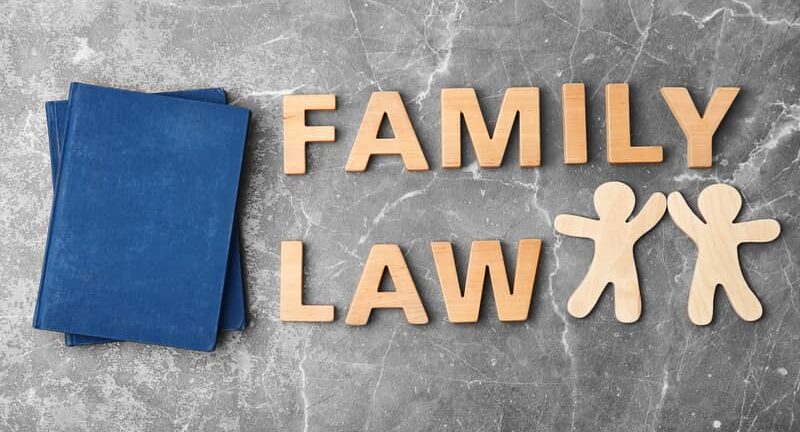
The disintegration of a family unit can cast long shadows over children’s lives, extending its reach into their educational spheres.
For parents wading through the murky waters of divorce and separation, the unintended consequences often manifest in their child’s academic performance.
In this article, we delve into these multifaceted issues, aiming to arm parents with knowledge and strategies, answering:
- How can the turmoil of domestic life impact school and social settings?
- How can parents act as a buffer and steer their children through this turbulent phase?
Prioritizing Your Children
It’s imperative your children’s well-being and requirements are the driving force behind every decision during the divorce process. In North Carolina, our legal precedents dub this the “Polar Star” or “North Star.”
Considering the best interests of children, parents must endeavor to provide a nurturing environment amidst sometimes seismic shifts in their domestic life – Bill Powers, Charlotte Divorce Lawyer
Gaining insights into your child’s emotional and scholastic state can help parents share information and shape their responses to common questions, ensuring your children feel both supported and heard.
Considering Divorce? Here’s Where to Start
While they were not part of the decision-making process in ending the marriage, children are called to live with the consequences. Anticipating their worries and concerns helps ease the blow.
Engaging with educators, therapists, and counseling experts adept at handling the nuances of family transitions can be instrumental. It’s paramount that children’s welfare remains the beacon illuminating each move, requiring compassion, adaptability, and an unyielding dedication to their holistic growth.
Concentration Challenges
Children grappling with the emotional weight of a divorce may find it hard to stay attentive, leading to a slump in grades.
Educators may pinpoint a drastic reduction in class participation or a wavering focus. The news of an impending separation and eventual divorce is a tumultuous time. Bolstering your child’s academic needs with patience and understanding can make a tremendous positive difference.
The emphasis should be on nurturing trust, fostering open channels of communication, and ensuring a stable environment.
Focus on the Child: By immersing yourself in your child’s world and fortifying ties with educators and support networks, you can help limit, and to some extent, alleviate the adverse effects of separation and divorce on scholastic achievements. 
Monitor Behavioral Shifts: A child’s behavior can offer valuable insights. An uptick in reclusive tendencies or unruly behavior can hamper learning and social bonds. Recognizing these shifts and liaising with school staff opens doors to customized interventions. If these changes linger, consider seeking expert help from therapy and family counseling.
Watch Friendship Dynamics: Alterations in friendship circles or mounting challenges in bonding with peers might surface. Kids occasionally grapple with feelings of alienation due to their parents’ relationship status. Prioritizing heart-to-heart discussions about their emotions and fostering opportunities for social engagements can help sow seeds of resilience.
Strategies for Supporting Young Minds
A comprehensive, well-thought-out plan is invaluable when tackling the intertwined challenges of divorce.
Your blueprint for success should incorporate emotional, educational, and social facets, tailored to the distinct needs of each child – Bill Powers, Child Custody Lawyer
To be clear, one size does not fit all. Children each have their own way of dealing with the perceived loss of control, consistency, and reliability. By committing to predictable routines and championing a culture of open dialogue, children can be enveloped in a cloak of love and an assured sense of security.
Why Hiring a Divorce Lawyer is So Important
Consistent Routines: Children often find solace in predictability. Maintaining a fixed schedule for homework, meals, and sleep can impart a semblance of normalcy. It’s a good idea to involve your child in crafting this routine, empowering them with a modicum of control.
Transparent CommunicationCultivate an environment where your child feels safe voicing their feelings. Make it a ritual to check in on their emotional state, reinforcing that their emotions hold validity. Kids, just like their parents, find it important to be heard. Communication provides agency to children, giving them the opportunity to perceive their new environment, set forth and achieve goals, and personally impact their futures.
emotional state, reinforcing that their emotions hold validity. Kids, just like their parents, find it important to be heard. Communication provides agency to children, giving them the opportunity to perceive their new environment, set forth and achieve goals, and personally impact their futures.
School Collaboration: Fortifying ties with educators and counselors ensures that they’re clued into your child’s specific needs. Truth be told, teachers, coaches, and counselors may very well experience more face time with children than parents. Periodic discussions can unearth insights into your child’s scholastic journey and social evolution. Making educators aware of life changes and personal challenges, on a proactive basis, can be key to a child’s academic and social success.
Seeking Professional Insights: Therapists and family counselors may serve as safe havens for your child, offering them the space to vocalize and navigate their emotions when talking to parents is just too hard and emotionally overwhelming. Moreover, family therapists can play a pivotal role in ensuring the legal aspects of child custody, and visitation resonate with your child’s best interests. Early intervention can often stave off prolonged negative repercussions.
Separation: An Often Overlooked Phase of Divorce
Legal separation, a necessary precursor to divorce in North Carolina, can be a stormy phase for children. The transitory nature of separation can breed feelings of uncertainty. That’s understandable. Parents themselves may not know what the future holds or what life will look like both in the short term and in years to come.
During this interim phase, parents should do their best to double down on ensuring stability, open conversations, and emotional sustenance. Setting realistic expectations and centering the child’s well-being can be immensely beneficial – Bill Powers, Divorce Lawyer
Co-Parenting Challenges
Post-divorce, co-parenting might be best described as walking a tightrope. It’s a delicate balancing act, aiming to mirror rules and values in two different households.
What You Need to Know About Child Custody
For co-parenting to flourish, both parents need to be on the same page, with the child’s welfare as the common denominator. That can be easier said than done. A common factor in couples choosing to divorce often centers on the inability to come to an agreement on many issues, including but not limited to child-rearing decisions.
Looking Beyond the Present
It’s crucial to realize that the aftershocks of divorce on academic achievements can have long tendrils. It necessitates constant dialogue, academic performance monitoring, and quality time.
Navigating Legal Waters Before Taking the Plunge
Before uttering the words, “I want a divorce,” it’s vital to have a comprehensive grasp of your legal rights and legal responsibilities.
Talking to a lawyer makes sense. Indeed, upon determining your obligations under the law, you may find it appropriate to seek counseling rather than initiating divorce proceedings.
It’s advisable to seek legal advice from an experienced divorce lawyer. Family law attorneys help clients fathom the ramifications of divorce, including custody arrangements, child support, and alimony.
The Lingering Aftermath: Even after divorce papers have been signed and routines established, the ramifications of ending a marriage can linger. Parents might notice fluctuations in behavior, academic inconsistency, or challenging social adjustments even years post-divorce. As a custodian of your child’s welfare, it’s imperative to maintain an observant eye, attuned to shifts in their demeanor.
Maintaining Open Dialogue: Acclimation to change takes time. Rarely do humans just “get over” substantial changes in life. Coping with divorce often involves processing and going through stages such as despair, anger, and, hopefully, eventual acceptance and peace. One of the cornerstones of ensuring your child navigates the post-divorce landscape with resilience is fostering a consistent environment of open dialogue. This doesn’t merely entail discussing the divorce itself but encompasses a broader spectrum of their life experiences. It’s about nurturing a space where they feel validated, heard, and understood.
How Much is Child Support in NC?
Adjusting to New Realities: Divorce often brings new family configurations. This might mean a parent remarrying or the introduction of step-siblings. These adjustments, while potentially positive in some regards, come with their own set of challenges. It’s crucial for parents to facilitate smooth transitions, ensuring the child feels integrated and valued within the evolving family unit.
Financial Ramifications: Beyond the emotional and psychological facets, the financial implications of divorce can indirectly impact a child’s academic journey. Reduced household incomes might entail shifting to a new school district, the need for scholarships, or adjustments in lifestyle. It’s essential for parents to broach these topics delicately, ensuring children are mentally prepared for upcoming changes.
Cultural and Societal Perceptions of Divorce: Depending on the community, children might face societal stigmas or cultural perceptions tied to divorce. Addressing these proactively and equipping your child with coping strategies can help them stand tall amidst potential peer pressure or societal judgment.
The Role of Extended Family: Grandparents, uncles, aunts, and cousins often play an integral role in a child’s life. Their support can be instrumental during and post-divorce proceedings. Regular interactions, family gatherings, and consistent routines with extended family serve as anchors of stability for a child.
Powers Law Firm: Your Trusted Legal Partner
Embarking on the divorce journey deserves a blend of compassion, resolve, legal acumen, and unwavering support. The dedicated team at Powers Law Firm stands ready to guide families through these intricate waters. Reach out to us today for a private, no-obligation consultation, and let us light the path ahead.
We help people with family law issues in the Charlotte-metro region, including:
- Charlotte, North Carolina in Mecklenburg County
- Monroe, North Carolina in Union County
- Mooresville and Statesville, North Carolina in Iredell County
Charting the Path Forward
As parents, while you may traverse the legal and emotional complexities of divorce, it’s pivotal to keep the spotlight on your child’s well-being. By melding empathy with informed strategies, you can help ensure that your child’s academic trajectory remains robust and resilient, even in the face of family transitions.
While divorce marks an end, it’s also a beginning. It’s a journey of reinvention, of forging new paths and building stronger bonds. With the right support systems in place, both parents and children can emerge from this experience with newfound strength and understanding.
Should you require counsel or assistance during this transformative phase, Powers Law Firm remains steadfastly by your side, merging legal experience with genuine compassion.
Helpful Information for People Thinking About Divorce
- What is Equitable Distribution in North Carolina?
- What is Collaborative Divorce: Why is it Better?
- What happens if you’re accused of Domestic Violence?
- VICTIMS of Domestic Violence
- Understanding the NC Wiretapping Laws and Your Rights
- Why it helps to have a lawyer who handles both CRIMINAL DEFENSE and FAMILY LAW cases
Related Posts
Equitable Adoption in North Carolina
The doctrine of Equitable Adoption is a judicially created “equitable” remedy...
Charlotte Child Custody and Contempt of Court
The North Carolina Court of Appeals ruled this week on a longstanding Charlotte...

